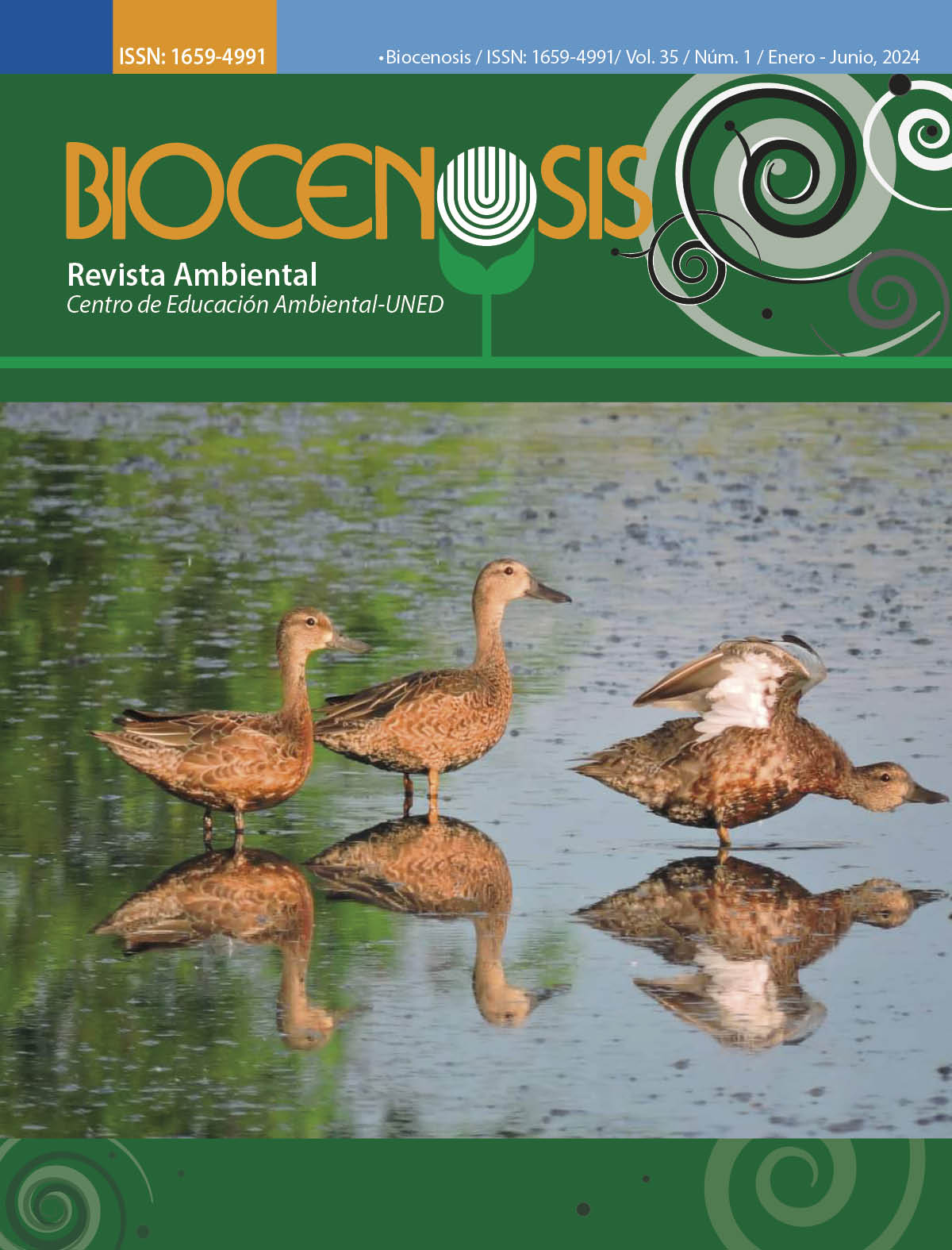Biological diversity and patterns of mammal activity in the Alexander Skutch Biological Corridor, Costa Rica
DOI:
https://doi.org/10.22458/rb.v35i1.5349Keywords:
forest, ecosystem, connectivity, camera trap, mammals, richness estimatorsAbstract
The biological corridors represent an essential strategy for diversity conservation, they constitute the second most important strategy in the country just behind the protected wildlife areas. They facilitate fauna movements between forest fragments; however, its effectiveness depends on the evaluation of its connectivity. This study focuses on medium-sized and big mammals in the Alexander Skutch Biological Corridor. Data from camera traps in nine spots between 2020-2021 were used. 692 mammals of 21especies, 14 families and 8 orders were recorded, including felines and the high presence of pet dogs. Species such as Dasyprocta punctata (cherenga), Philander melanurus (zarigüeya de cuatro ojos), Dasypus novemcinctus (armadillo de nueve bandas) and Didelphis marsupialis (zorro pelón), were abundant, whereas others such as Odocoileus virginianus (venado de cola blanca), Canis latrans (coyote), H. jagouaroundi (jaguarundi) and Mustela frenata (comadreja), less common. The activity was mainly at night or at dusk. The spotting of pet dogs suggests underprotection in the low areas of the corridor. Although there was high diversity of species and the presence of felines indicates a healthy ecosystem, the lack of connectivity may affect species such as P. concolor (puma). The activity pattens coincided with previous studies. It is necessary to improve the protection and connectivity for effective biodiversity conservation in the corridor.
Published
How to Cite
Issue
Section
License
Copyright (c) 2024 Jesús Alberto Herrera Mora

This work is licensed under a Creative Commons Attribution-NonCommercial 4.0 International License.
